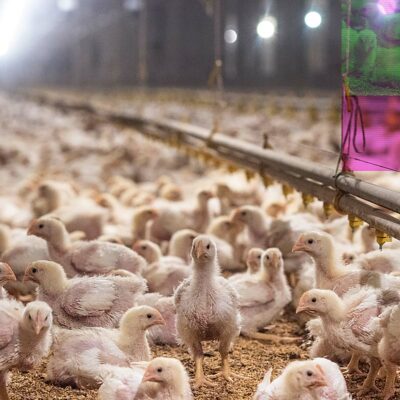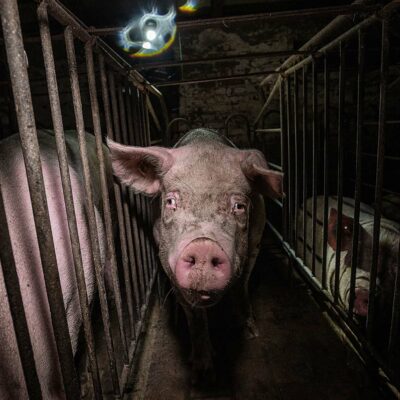For Animals

U.S. Animal Kill Clock
animals have been killed for food so far this year in the United States
animalclock.orgSIX SECRETS OF MODERN FARMING
1. Mothers lose their young.
Female animals are treated as nothing more than breeding machines, and very few are permitted to nurture their young. Eggs are taken from hens and hatched industrially; piglets are separated from their mothers when just a few weeks old; and calves are stolen away from dairy cows, so they don’t drink the milk that was made just for them. Many mothers and their young desperately call for one another for days, but their cries go unheard.
2. Cows don’t just produce milk, they must first be impregnated.
This is the same for all mammals. To keep the milk flowing, cows are repeatedly inseminated, almost always artificially, which takes an enormous physical toll on them. Their bodies break down, and many are considered “spent” before reaching their sixth birthday. In other circumstances, they could live to 20 or more.
3. Farming creates unwanted living “by-products,” and they are also killed.
Male chicks born into the egg industry are considered worthless as they cannot lay eggs, and so they are killed—either gassed, crushed, or ground up—on their very first day of life. Similarly, male calves born into the dairy industry cannot give milk. Some may be reared for veal or beef, but they are simply shot at birth if their bodies cannot be monetized.



4. Mutilations are commonplace.
Chickens and turkeys have the ends of their beaks sliced off; cows are castrated and dehorned; while pigs may have their teeth clipped and tails cut off—all without anesthetic or analgesic. The infliction of pain and suffering is all too common on farms.
5. Fish are factory farmed, too.
In filthy crowded pens and sea cages, fish routinely suffer debilitating and deadly illnesses. Caging animals who would naturally swim in the wide-open rivers and oceans also causes psychological harm that can be seen in stereotypical behaviors.
6. No one gets out alive.
Animals are not retired when they get too old to breed. All animals— including egg-laying hens and dairy-producing cows—are shipped to slaughter when they are no longer considered sufficiently productive. This is a ruthless industry where animals’ lives are worth something only if their bodies are profitable.